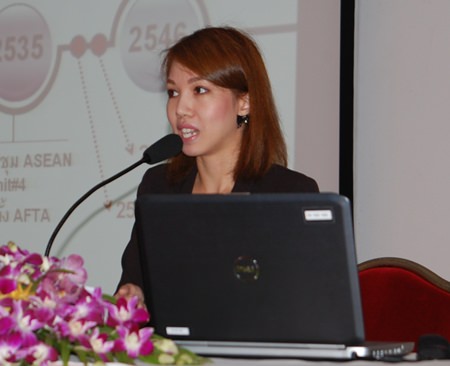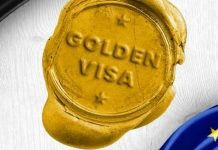Government trade officials offered advice for companies hoping to expand export opportunities at an ASEAN Economic Community-focused seminar in Pattaya.
Jaras Kittisomboonsuk, director of the Bureau of Foreign Trade Services, and Boochita Intaratat, an expert from the Department of Foreign Trade, were the lead speakers at the Nov. 13 seminar sponsored by Pattaya, the Ministry of Commerce and the Department of Foreign Trade at the Montien Hotel.
 Boochita Intaratat, an expert from the Department of Foreign Trade, tells the seminar that free-trade agreements are important tools for expanding the value of trade and investment, as well as for maintaining old markets and extending trade to new ones.
Boochita Intaratat, an expert from the Department of Foreign Trade, tells the seminar that free-trade agreements are important tools for expanding the value of trade and investment, as well as for maintaining old markets and extending trade to new ones.
The lecturers said it was a well-known fact that competition in the global market is growing intense and Thailand has to rely more on international trading. Thus, they said, free-trade agreements are important tools for expanding the value of trade and investment, as well as maintaining old markets and extending trade to new ones.
They will help the country increase its potential in exporting goods and services and be able to lure more foreign investors to invest in the country.
The ASEAN Free Trade Agreement preceded the start of the AEC next year. ASEAN also signed free-trade agreements with countries from other regions to support ever-changing global trade and to increase ASEAN’s leverage in global negotiations, they said.
Currently, ASEAN has signed free-trade agreements with six nations: China, Japan, India, Australia, New Zealand and South Korea.
Jaras said the amount of benefit Thai business operators will gain from FTAs depends on their knowledge and understanding of it, especially of the Rules of Origin, which lowers to zero tariffs on products proven to be grown, produced or manufactured entirely in the country. Another variable is their awareness of how to seek new market opportunities, he said.




